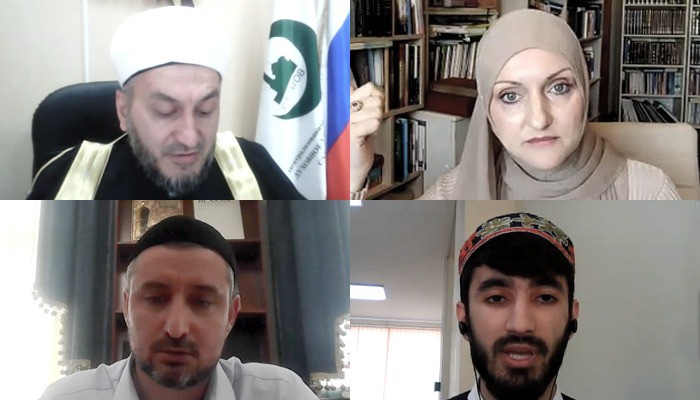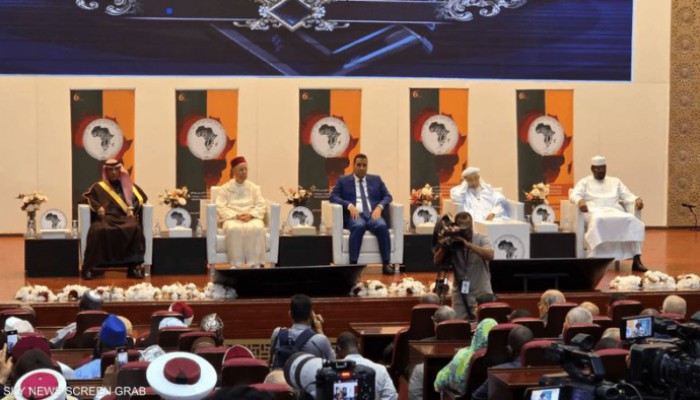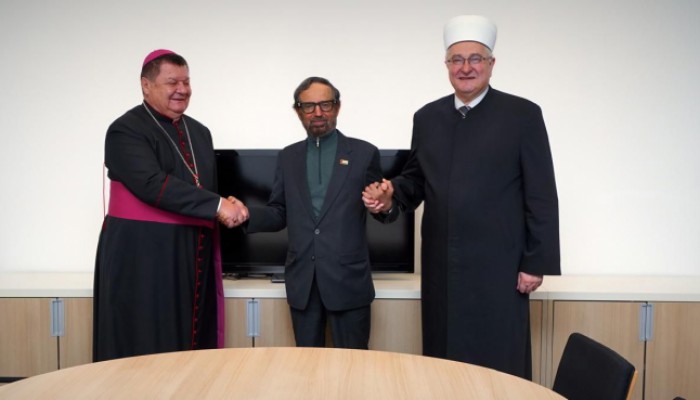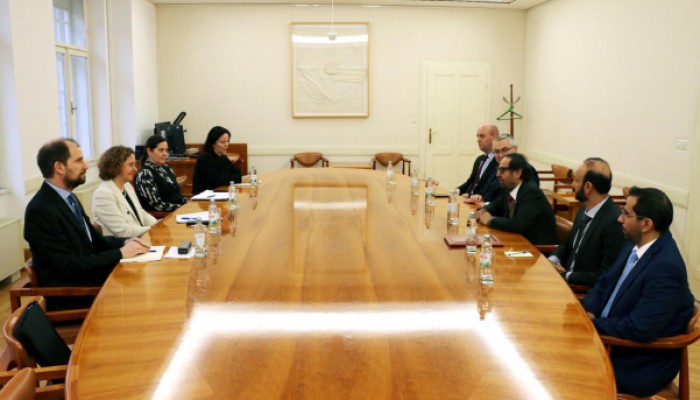
TWMCC Holds ‘The Role of Religious Administrations in Russia in Combating Imported Fatwas’ Online Panel
- 2025-Jul-29
The World Muslim Communities Council (TWMCC), in cooperation with the Moscow Islamic Institute, held an online panel on ‘The Role of Religious Administrations in Russia in Combating Imported Fatwas’, with the participation of a group of professors and scholars specialised in the fundamentals of jurisprudence and Sharia law.
During the lecture, Kuzyakhmetov Rasim Mukhtarovich, Mufti of Saratov Region in Russia, spoke about this topic and emphasised that the Muslims of Saratov region, like other Muslims, are concerned about the issue of fatwa in terms of its formulation and use in Muslim lives, achieving religious and life balance.
He pointed out that the Religious Administration in the Saratov Region has sought and continues to seek to legalise the issue of fatwas and strengthen fatwa-making institutions based on the realistic data of Muslims' lives.
On the importance of religious fatwas, Kuzyakhmetov Rasim Mukhtarovich, Mufti of Saratov Region in Russia, said that a fatwa is a prescription for a specific case and is customised for a specific region to achieve their religious and worldly interests.
He added that the reality of Muslims in their region as a minority in a predominantly non-Muslim country is very different from the reality of Muslims in a Muslim country, and this must be directly reflected in the content of the fatwa.
The Mufti of Saratov Region in Russia pointed to the obstacles facing religious institutions in Russia, including the lack of scholarly and legal cadres capable of recognising the variables of reality and the specificities of the current situation.
Maryam Kafalova, Head of the Fatwa Department, Religious Administration of Muslims of Belarus and Head of the Islamic Centre for Family Development, spoke about the situation of Muslims in Belarus and its impact on religious fatwas, stressing that Belarus enjoys great religious diversity, including the presence of Muslims, and the number of Muslims in Belarus is about 120,000 people.
She added that the vast majority of Muslims in Belarus today are immigrants, and this requires appropriate conditions for them from the Islamic community administrations.
Regarding the methods of issuing fatwas there, Maryam Kafalova, Head of the Fatwa Department, Religious Administration of Muslims of Belarus and Head of the Islamic Centre for Family Development, emphasised that the sectarian and social diversity among Muslims in Belarus requires a flexible approach to issuing fatwas.
She added that the Religious Administration of Muslims of Belarus is responsible for issuing fatwas and takes into account the different schools of thought and the circumstances facing Muslims in the country.
Reviewing the mechanism by which fatwas are issued, the Head of the Fatwa Department, Religious Administration of Muslims of Belarus and Head of the Islamic Centre for Family Development emphasised that fatwas in Belarus seek to strike a balance between Muslims who have historically resided there, new converts to Islam, and Muslims who have immigrated to Belarus.
Ganiev Ilyas Ali, Secretary General of the Council of Scholars of the Religious Administration of Muslims of the Russian Federation and a teacher of Islamic jurisprudence and its principles at the Moscow Islamic School, believes that many foreign fatwas do not take into account the local cultural characteristics, legal norms, and social and political realities of a given country.
On the influence of foreign fatwas, he warned of their dangers, most notably the lack of clear mechanisms to monitor them, as many foreign clerics issue fatwas that can lead to negative consequences due to their lack of sufficient understanding of a given country's specificities and social conditions.
Ganiev Ilyas Ali, Secretary General of the Council of Scholars of the Religious Administration of Muslims of the Russian Federation and a teacher of Islamic jurisprudence and its principles at the Moscow Islamic School, added that the internet and social media have facilitated the spread of foreign fatwas, making the issue more acute.
On ways to counter imported fatwas, he said that local scholars should be supported to counter imported fatwas by enhancing the level of local jurists, and then people will follow the fatwas of local sheikhs and scholars.
The Secretary General of the Council of Scholars of the Religious Administration of Muslims of the Russian Federation and a teacher of Islamic jurisprudence and its principles at the Moscow Islamic School, emphasised the need to strengthen international cooperation to combat imported fatwas, and to monitor the internet and social media to determine what fatwas are being posted.
Mohammedzadeh Faramarz Noorallah, a Student at the Moscow Islamic Institute in Russia, said that we must have competent scholars and strong, contemporary fatwas.
Regarding the requirements for those who issue fatwas, he stated that an Islamic scholar must not only be a jurist in Sharia sciences, but also in other sciences related to people's lives and the demands of their livelihoods.
Mohammedzadeh Faramarz Noorallah, a Student at the Moscow Islamic Institute in Russia, added that the methodology of issuing fatwas must be improved to suit the realities of the times and to solve contemporary problems.
Regarding the role of Islamic religious institutions, he emphasised that they have the ability to formulate fatwas that are appropriate for the times and to prepare specialists capable of addressing these problems.
He also pointed out that the local community and population must be taken into account in issuing fatwas and listening to their opinions.







